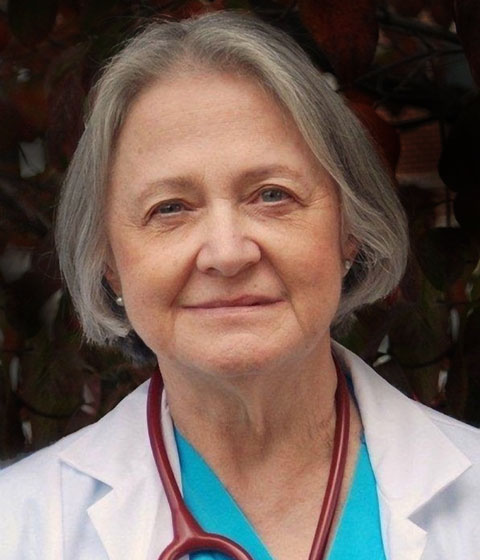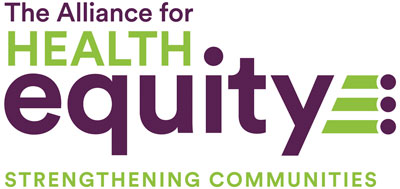Lorna Stuart — 2022

Lorna Stuart, MD, the founder of The Clinic, Honored with Sixteenth Annual Rebecca Lukens Award
Dr. Lorna Stuart, a family practice physician, is the 2022 Rebecca Lukens Award honoree.
Lorna Stuart is the founder of The Clinic, a non-profit medical practice based in Phoenixville that serves families in need in the borough and the surrounding region. Established in 2002 to serve individuals and families who have no medical coverage or inadequate medical insurance, The Clinic relies on a volunteer staff of physicians and offers a range of services such as laboratory tests and specially care, from gynecology and pediatrics to dietetics and counseling services.
Stuart earns the Rebecca Lukens Award in part because her work at the Clinic, which has served more than 150,000 patients, and for her leadership and insight in seeing the value of a “safety net” medical provider for at-risk patients and for envisioning a future for other community-based health programs in Chester County. In the words of Scott G. Huston, NISHM’s president, Stuart has led a life of service that reflects the kind of qualities Rebecca Lukens had in her lifetime. “Dr. Stuart is a modern-day example of the traits that Rebecca Lukens exhibited: leadership, resilience, courage, and strategic outlook.”
Sponsors
The Rebecca Lukens Award is made possible through
the generous support of:
The Alliance for Health Equity, Breuninger Insurance,
The Gunard Berry Carlson Memorial Foundation, Citadel Federal Credit Union, Edge Wallboard
Machinery Co., The Huston Foundation ,G.A. Vietri, Gawthrop Greenwood, PC, JacobsWyper
Architects, Mr. & Mrs. Peter Nunn, Patterhn Ives,llc., Penn Medicine’s Chester
County Hospital, PECO, Presence Bank , Rainer & Co., The Stewart Huston Charitable
Trust, Summers & Zims, Inc., Unruh, Turner, Burke & Frees, Wegmans, and William
Dunleavy Inc.
More about Stuart
Stuart, who is now retired
as the medical director but still volunteers at The Clinic as a physician, said that
she saw a need for non-profit medical services several years ago when she noticed
an increasing number of people putting off their healthcare needs because they lacked
health insurance. “Practicing medicine the way I felt it should be practiced
(with respect, care, and available to EVERYONE) was one of the forces behind starting
the clinic,” Stuart said in an email message.
Stuart earned her medical degree from the medical school at the University of British Columbia, Vancouver, Canada, and completed a post-doctoral fellowship at Harvard University and was a doctoral student in physical chemistry at Oxford University in England. She has lived in Canada and England, and with her training, could have easily worked at a large city hospital. Instead, when she opened her first private practice in 1980, it was with the community in mind: It had an all-female medical staff and was known for its outreach to families. Later, with the help of a friend, the Reverend Marie Swayze, Stuart said that was able to secure funding for the total restoration of a “crumbling old Victorian rectory,” which now houses The Clinic.
About the Award
The Rebecca Lukens Award
was established in 2007 by the Graystone Society, the parent of NISHM, to recognize
individuals who have dedicated their time, talents, and expertise to their community
and who exhibit the compassionate qualities of Rebecca Lukens, the colonial ironworks
owner. Now celebrated as America’s first female industrialist, Rebecca
took over the mill at a difficult time. In 1825, at the age of 31 and pregnant with
her sixth child, Rebecca promised her husband, Charles Lukens, on his death bed, that
she would carry on the business. She did more than that and went on to improve the
company’s ability to roll iron plates, the “boilerplate” of the
future steam industry. Other innovations served both the company and its workers:
Rebecca established a freight stop on the railroad, built company homes, and inspired
a loyal workforce by giving them work on the farm when the mills were inactive.
In modern-day terms, Rebecca had a “strategic outlook” that included seeing
the company through a string of national financial and economic crises. Many of Rebecca’s
qualities were also driven by her Quaker faith especially the ideals of equality,
courage, and endurance.
Exhibit Links
Major Funding For The 2022 Rebecca Lukens Award Made Possible By

Donate To The Museum









